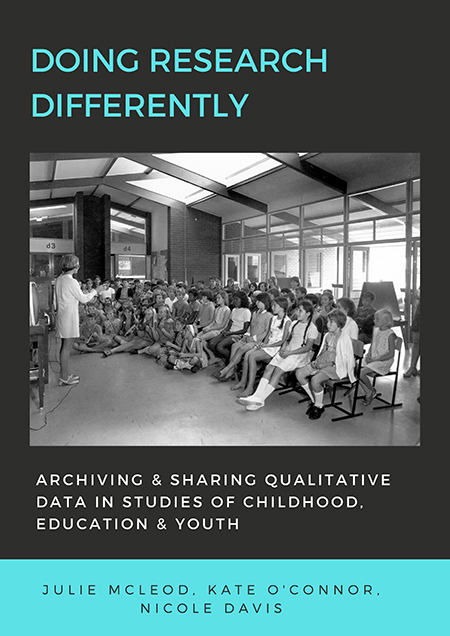Internationally there is growing enthusiasm and expectations for researchers to make their research data openly available for use by other scholars and interested parties, including the wider public. Funding organisations are increasingly introducing requirements for the publication of datasets and actively encouraging data sharing; concurrently, institutions and researchers are looking at new ways of storing, managing and disseminating their research data.
There is a corresponding interest in experimenting methodologically with data sharing and addressing its ethical, methodological and practical challenges. Overall, researchers, institutions and funding bodies are giving greater attention to documenting best practice in the storage, management and accessibility of data for re-use or secondary analysis, taking account of regulatory settings and opportunities for innovations in how research is undertaken and communicated.
Last year we published out discussion paper, Doing Research Differently: Archiving & Sharing Qualitative Data in Studies of Childhood, Education and Youth via the Analysis & Policy Observatory. Over the next few months, we’ll be sharing insights from the publication in a series of blog posts; each will explore a variety of themes roughly guided by the sections of the discussion paper. Today’s post introduces the publication and the various topics covered within.

Doing Research Differently explores directions and dilemmas in the archiving and sharing of qualitative research, taking a specific focus on studies of childhood, education and youth, predominantly from across the social sciences. It was prepared as part of a program of work funded by the Australian Research Data Commons (ARDC), which comprised the development of a pilot qualitative data archive and sharing platform – SOCEY (Studies of Childhood, Education and Youth) – and the archiving of data from six projects within that archive.
The paper begins by discussing the opportunities and challenges for archiving and data sharing in qualitative research and provides an overview of Australian and international examples of archiving and sharing. We then detail the development of the SOCEY Repository pilot, before considering protocols and exemplars of best practice for archiving and sharing research data alongside the experiences of those who conducted the pilot archiving. Finally, they propose some key principles intended to inform their future work in this area and define their next steps.
Also appended are reports by the project archivers and other contributors, which provide a detailed account of the different approaches taken to archiving project data on the SOCEY Repository. These are also going to form the basis of a series of blog posts, which we hope will be of assistance to researchers interested in archiving (and possibly sharing) their research data.
The full discussion paper can be viewed via the APO website or a PDF downloaded here. Further details can be found on the Discussion Paper page on this website.